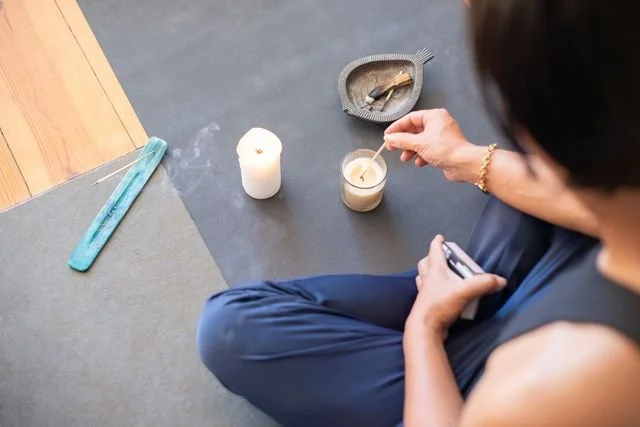If you are a sports fan, you know that many athletes are superstitious. They may have a piece of clothing they will wear to every event. On the day of the game, many of them will follow the same schedule. They will get up at the same time and eat the same meal. They will drive the same way to the stadium and listen to the same music on the way.
Some of these rituals are part of the game. If you are a baseball fan, you know that the game is full of rituals. Pitchers will go through a routine before each pitch. Batters will step out of the batter’s box and got through a series of gestures between pitches as well.
Some of these behaviors sound silly, but there’s some science to back up their habits.
Research shows that rituals can be useful for soothing anxiety.
That’s important because stress and anxiety can feel uncomfortable and hamper your performance.
Some ritual behaviors, like whistling and flipping a coin, are just nervous habits. It is also possible for the repetitive behavior of rituals to becomes excessive or compulsive. But ritual behaviors can give a structure to your life that lessens the possibility of anxiety; these behaviors can also be helpful when the anxiety does show up.
Try some of these strategies to develop rituals in your life.
1. Begin your day with intention and purpose.
Consider your morning routine. You may not even be able to remember it, because, most likely, you do it on autopilot, without thinking. And yet, the way you begin your day can have a role in setting a tone for how the day unfolds, and how you are during the day.
When you wake up, spend a few seconds just becoming aware of your surroundings. Feel the temperature of the air and the sensations of the covers against your skin. Move your feet, your legs, and your arms. Slowly rise from the bed and feel your feet on the floor. If your mind starts thinking about the tasks of the day or you start to feel the anxiety, acknowledge those thoughts and feelings and return your attention to the ritual of getting up.
2. Check your posture and your breathing.
The way you carry your body through the day can impact your mood. If you struggle with anxiety, your posture may be rigid or inflexible. Your breathing may be shallow. Develop a ritual of checking in with your body at specific times during the day. You can set reminders on your phone, or you could do it at mealtimes. Spend a few minutes sitting in an erect but comfortable position while you take some deep breaths.
If you’ve had anxiety for a while, you may not even be aware of how you are carrying it around in your body. Several years ago, I was working with a client who had severe anxiety. As we talked about an episode of anxiety, I asked him to take a moment and look at and feel his body. He looked down and realized his hands were clenched in a tight fist as we were talking. We spent several minutes feeling the tension in his arms and experiencing the release of that tension as he slowly unclenched his hands. It was something he had never realized, but now, it was something he checked on from time to time.
3. Listen to music.
There have been lots of studies that show the calming effect of music. Create playlists that work for you. You may have different kinds of music for different times of the day. Schedule moments during the day when you play some music. It can be one or two songs, but be present and welcoming of the gift of music that you are sharing with yourself.
4. Dress up (or dress down).
We’ve all heard the phrase, “You look good, you feel good.” Getting dressed for work or the day may be something you do without thinking. Pick a day where you give a few moments thinking about what you want to wear. It may be a favorite outfit, or just some colorful socks that a friend or loved one gave to you.
If it’s your day off and you are running some errands, put on a nice, casual outfit, instead of throwing on your sweats and tennis shoes. Notice what it feels like to wear something different.
5. Do a household chore.
No, I’m not suggesting you go into full cleaning mode. Pick one task—mopping, dusting, organizing a drawer—and do it with awareness and focus. Feel the rhythm of the work. When you are finished, step back and enjoy the completed task.
If you struggle with anxiety, you may live your life at a frenetic pace. And you may not be aware of just how much the anxiety shapes your daily experience. Building ritual behaviors into your day can be a way to soothe your anxiety. My anxiety treatment specialty page offers more information about how I work with people who struggle with a variety of anxiety struggles.



